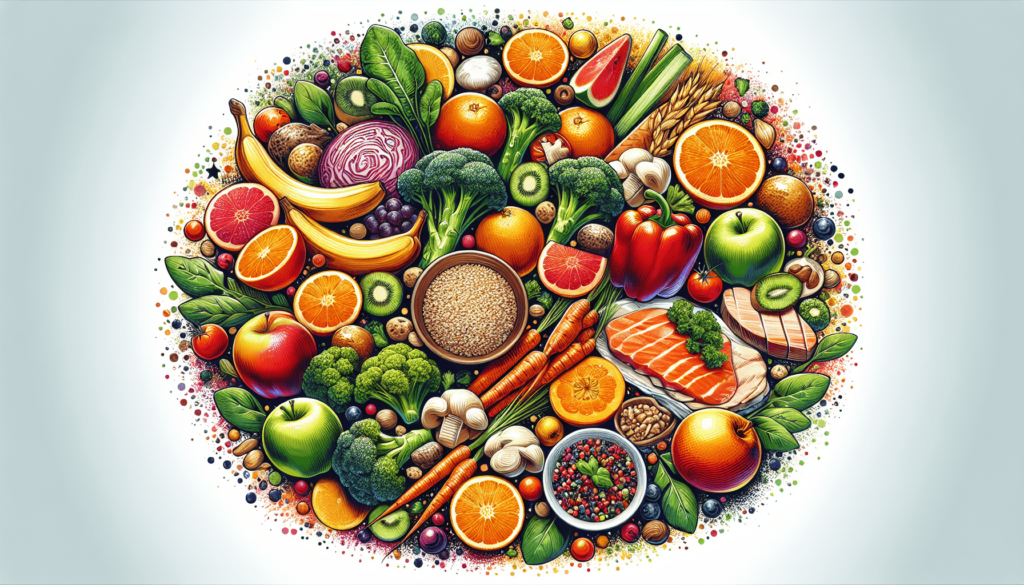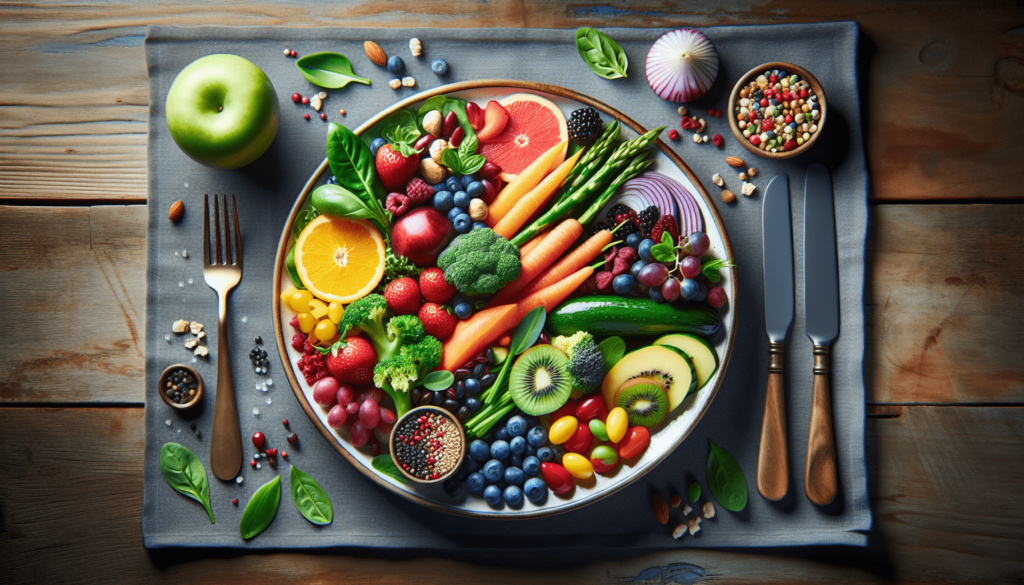Can your diet really impact your athletic performance? Let’s dive into how you can maximize your athletic abilities through the food you eat.

The Importance of Proper Nutrition for Athletic Performance
When it comes to excelling in sports and physical activities, having a proper diet is key. Your body needs the right nutrients to perform at its best, whether you are a professional athlete or simply enjoy working out.
How Food Fuels Your Body
Food is like fuel for your body. Just as a car needs gas to run efficiently, your body needs the right balance of nutrients to function optimally. When you consume a variety of healthy foods, you are providing your body with the energy it needs to perform at its peak.
The Role of Macronutrients
Macronutrients, which include carbohydrates, proteins, and fats, are essential for athletic performance. Carbohydrates are the body’s primary source of energy, while proteins help repair and build muscle tissue. Fats are also important for providing energy and supporting overall health.
Crafting Your Ideal Athletic Performance Diet
Now that you understand the importance of nutrition for athletic performance, let’s discuss how you can craft an ideal diet to maximize your abilities.
Balancing Macronutrients
A balanced diet should include a mix of carbohydrates, proteins, and fats. Aim to consume a variety of whole foods such as fruits, vegetables, lean proteins, and healthy fats to ensure you are getting all the nutrients your body needs.
Timing Your Meals
In addition to focusing on the right balance of macronutrients, it is essential to consider when you eat. Fueling your body before and after workouts can enhance performance and aid in recovery. Eating a meal rich in carbohydrates and protein before exercise can give you the energy you need to push through a tough workout, while consuming protein and carbohydrates post-workout can help with muscle repair and replenishing glycogen stores.

Hydration for Peak Performance
Staying hydrated is just as crucial as eating the right foods when it comes to athletic performance.
The Importance of Hydration
Water plays a vital role in nearly every bodily function, including regulating body temperature, transporting nutrients, and aiding in digestion. Dehydration can lead to fatigue, decreased performance, and even heat-related illnesses.
How Much Water You Need
The amount of water you need varies depending on factors such as your activity level, the climate you live in, and your overall health. As a general guideline, aim to drink at least eight 8-ounce glasses of water per day. If you are engaging in intense physical activity, you may need to drink even more to stay properly hydrated.
Key Nutrients for Athletic Performance
In addition to macronutrients, there are several key nutrients that play a vital role in athletic performance.
Vitamin D
Vitamin D is essential for bone health, muscle function, and overall immunity. Spending time outdoors in the sunlight can help your body produce vitamin D, but you may also need to supplement if you have low levels.
Iron
Iron is crucial for transporting oxygen throughout the body, which is essential for endurance sports. Incorporate iron-rich foods such as lean meats, beans, and leafy greens into your diet to support optimal performance.
Omega-3 Fatty Acids
Omega-3 fatty acids have anti-inflammatory properties, which can help reduce muscle soreness and improve recovery time. Include fatty fish, flaxseeds, and walnuts in your diet to increase your intake of these beneficial fats.
Supplementation for Peak Performance
While a well-rounded diet should provide most of the nutrients you need for athletic performance, supplementation can sometimes be beneficial.
Protein Powder
Protein powder is a convenient way to ensure you are getting enough protein to support muscle repair and growth. Whey protein, casein protein, and plant-based protein powders are all popular options for athletes.
Creatine
Creatine is a naturally occurring compound that can help increase muscle mass and strength. Many athletes supplement with creatine to improve their performance during high-intensity activities.
BCAAs
Branched-chain amino acids (BCAAs) are essential amino acids that play a key role in muscle protein synthesis and recovery. Adding BCAA supplements to your routine can help support muscle growth and reduce muscle fatigue.
Meal Planning for Athletic Performance
Now that you have a better understanding of how nutrition can impact your athletic performance, let’s talk about how you can plan your meals to optimize your abilities.
Pre-Workout Meals
Eating a meal rich in carbohydrates and protein before a workout can help fuel your body and provide the energy you need to perform at your best. Consider foods like oatmeal with berries and Greek yogurt, a turkey and avocado sandwich on whole grain bread, or a smoothie with protein powder, fruits, and spinach.
Post-Workout Meals
After a tough workout, it’s important to replenish your glycogen stores and support muscle recovery. Aim to eat a meal or snack that contains both protein and carbohydrates within 30 minutes to an hour after exercise. Try options like grilled chicken with quinoa and roasted vegetables, a tuna salad sandwich on whole grain bread, or Greek yogurt with granola and honey.
Snacking for Performance
In between meals, choose snacks that are nutrient-dense and provide sustained energy. Opt for options like trail mix with nuts and dried fruit, whole grain crackers with hummus, or a protein bar with minimal added sugars.
Tracking Your Progress
Just as you track your workouts and physical progress, it can be beneficial to monitor your dietary habits to see how they are impacting your athletic performance.
Keeping a Food Diary
Writing down everything you eat and drink throughout the day can help you identify patterns and make adjustments to your diet as needed. Note how you feel before and after workouts, as well as any changes in your performance or recovery.
Consulting with a Nutritionist
If you are struggling to achieve your desired athletic performance goals, consider seeking guidance from a nutritionist or dietitian. A professional can help create a personalized meal plan tailored to your specific needs and goals.
Conclusion
In conclusion, your diet plays a significant role in maximizing your athletic performance. By focusing on proper nutrition, hydration, key nutrients, and meal planning, you can fuel your body for success in whatever physical activities you enjoy. Remember to listen to your body, make adjustments as needed, and always strive for balance and consistency in your dietary habits. By taking a proactive approach to your nutrition, you can reach new levels of performance and achieve your athletic goals.

